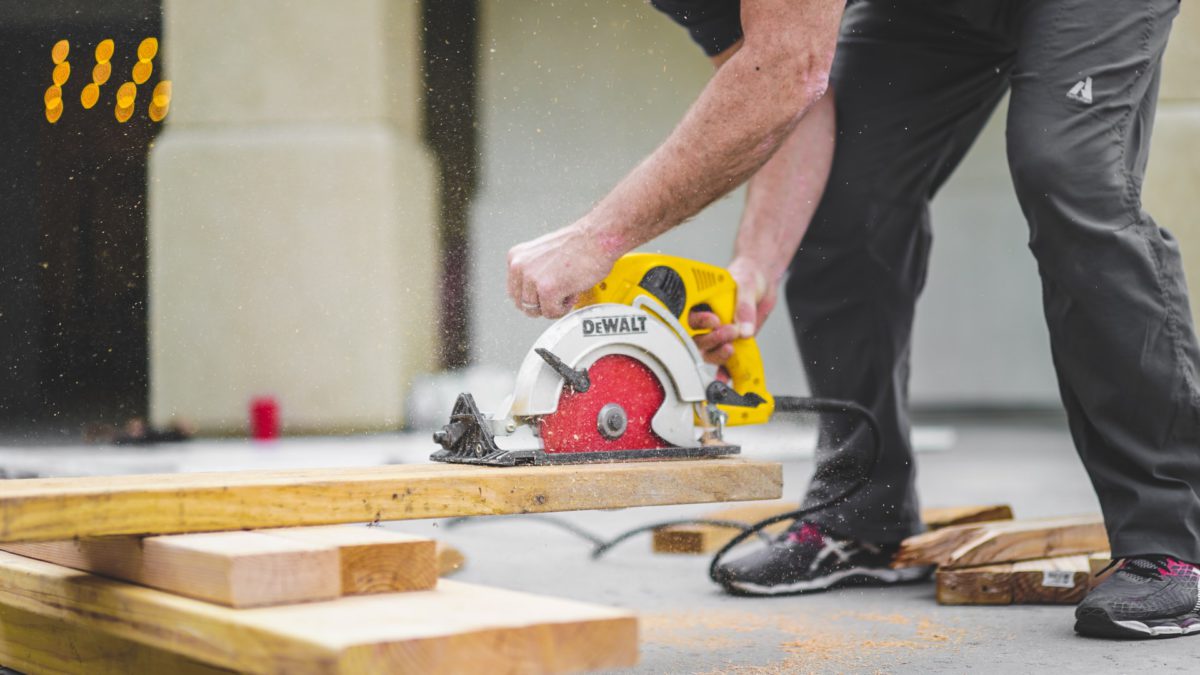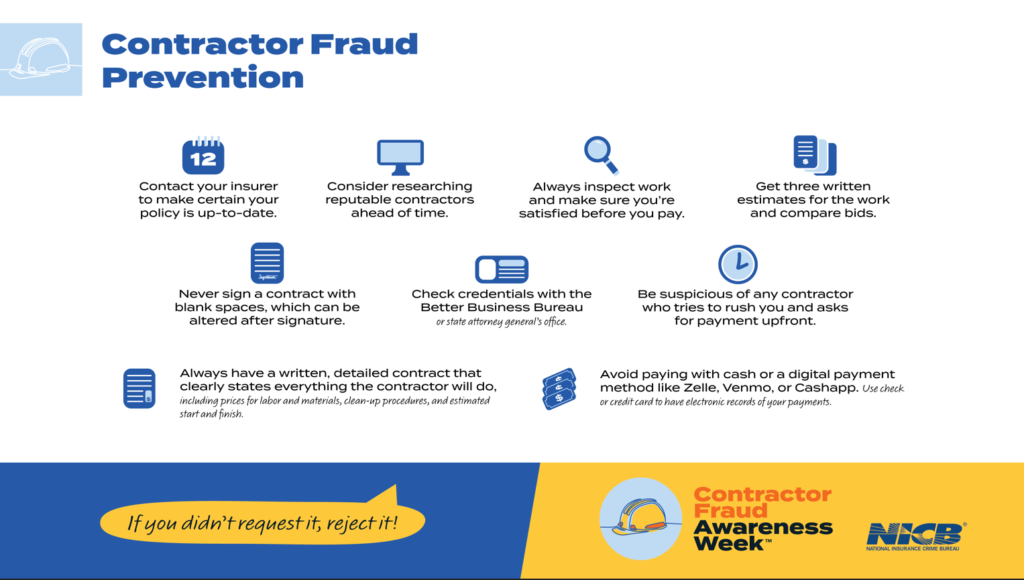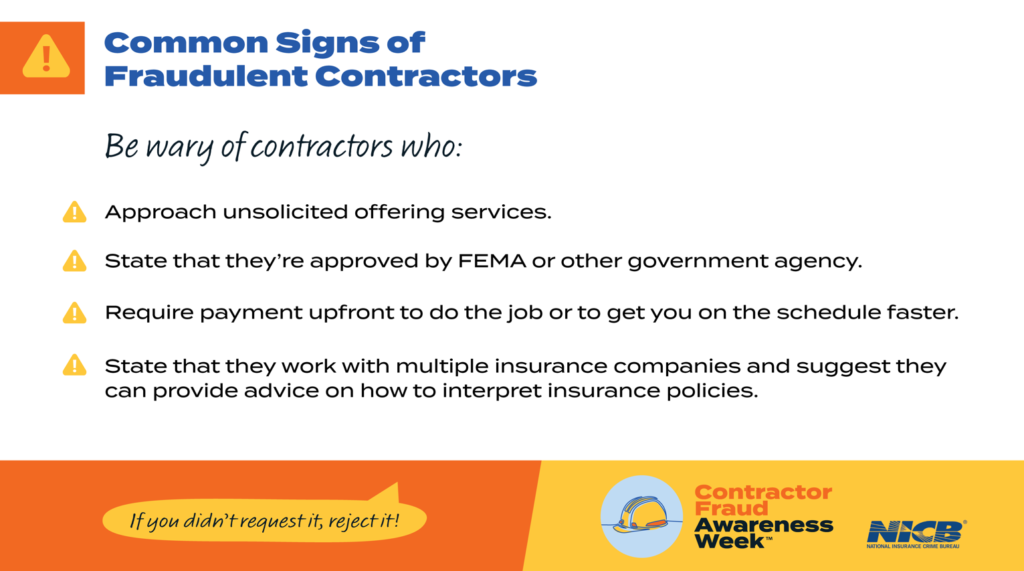
Contractor Fraud: ‘If You Didn’t Request It, Reject It,’ Says NICB
By a Biometrica staffer
After someone has been evacuated from their home or been impacted in any other way by a natural disaster, the last thing they’d want is to fall victim to something else. Yet that’s what happens to many Americans after a disaster, thanks to disreputable and fake contractors. Often after a disaster, contractors go door-to-door in damaged neighborhoods, offering their cleanup or repair services. Although a lot of these contractors are just honest, reputable people looking for work, there are also those who are not.
As David Glawe, president and CEO of the National Insurance Crime Bureau (NICB), put it in a recent statement: “As insurance claims increase in the aftermath of a catastrophic event, so, too, does the opportunity for fraud. Sadly, many fraudsters prey on disaster victims at a time when they are emotionally devastated and most susceptible to scam artists who present themselves as concerned contractors.” The NICB, the not-for-profit organization that works to combat and prevent insurance crime, just launched its inaugural “Contractor Fraud Awareness Week” on Monday, July 12.
With some parts of the country recently being inundated by flood waters even as wildfires force people out of their homes in other parts, we thought it only apt to discuss scams that follow in the wake of natural disasters. In today’s piece, we give you an overview of contractor fraud: What it is, what the common signs of being scammed are, and what you can do to protect yourself from it.
What is contractor fraud? Contractor fraud happens when an individual contractor or a company offers services that knowingly mislead the other party. It could include performing unsatisfactory repairs or charging more than a job is worth. It usually ends up becoming a costly affair for a homeowner, with racked up bills, unnecessary additional repairs, and insurance complications.

Common Signs Of Contractor Fraud
- Your contractor reaches out to you unsolicited, and claims to be approved by the Federal Emergency Management Agency (FEMA) or another government agency.
- They claim that they require you to pay upfront to do the job, or in order to get the job done faster. Sometimes, even genuine and reputable contractors may ask you to pay upfront, but do not put down a substantial part of the total upfront.
- They claim they work with several insurance companies and can help by giving you advice on how to interpret insurance policies.
- If your contractor seems hesitant to sign a lien waiver, it could be a sign for caution.
- If it sounds too good to be true, it probably is. For instance, if your contractor says you can get full credit for your deductible, again exercise caution as it could be illegal.
- Always be extra attentive during the inspection when, sometimes, disreputable contractors could go “examine” spaces that are tough to access that may not require any repairs, but could be used to bump up your cost later on.
- Think twice before you hire an out-of-state contractor as they can prove to be hard to chase, even if they are legitimate.
- Always sign a contract listing out everything before you make any payments to your contractor. If your contractor seems hesitant to do this, it could be a sign that they are probably not as reputable as they claim to be.
- If you choose to work with an unlicensed contractor, you can be held responsible for any problems that arise. It could be doubly worse if the contractor in question is trying to scam you, of course.

Tips To Protect Yourself
- Try and maintain good relations with your insurer. They will be your first line of defense against fraud. The first thing you need to do after you come back home post-disaster is call your insurance company. Ask them for details like how long you have to fill out your claims, how much your deductible is, whether your policy covers that kind of loss, etc. You also should take pictures of everything that has been damaged, small or big, for your own records, even though an adjuster will arrive to note everything down anyway.
- Ideally, if you have had enough fair warning that you may need to evacuate, try to make a list of contractors that you feel will be good to hire if the need arises. Look up reviews on these contractors, check on their licenses, and seek out their Better Business Bureau information. If possible, shop around for a contractor by getting recommendations from friends and neighbors.
- It’s better to try and do this background check beforehand, whenever possible. This way, you’ll minimizing the chance of making decisions in a hurry when you are in a vulnerable state if your house is damaged by a disaster.
- As we mentioned before, always be wary of unsolicited approaches by contractors. And never pay the full amount upfront. Always make sure you get everything in writing and get your contractor also to sign off on it. This should include prices for labor and materials, clean-up procedures, and estimated start and finish dates.